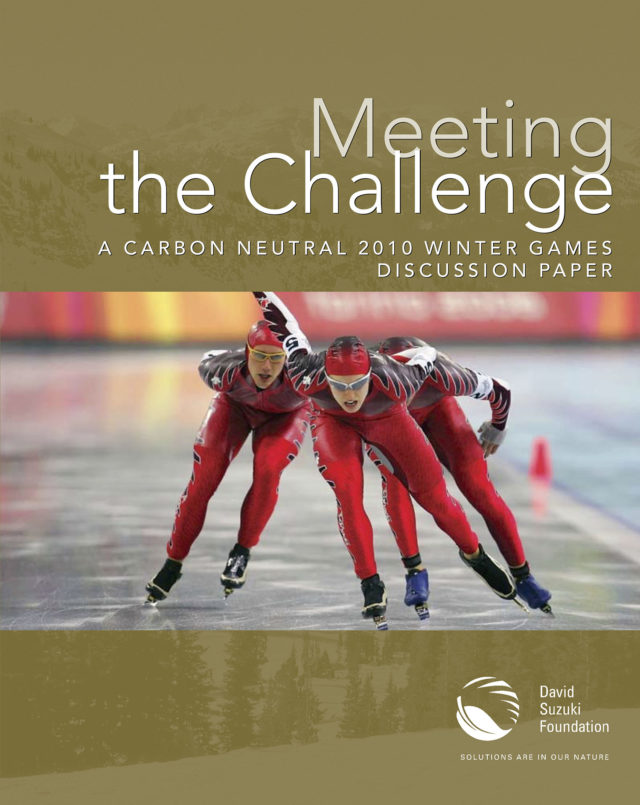Meeting the Challenge: A Carbon Neutral 2010 Winter Games Discussion Paper
Published by:
David Suzuki Foundation
ISBN:
1-897375-09-3
Climate solutions, Cities decarbonization, sustainable transportation, British Columbia, 2010 Olympic Games, energy, greenhouse gas emissions, sports and recreation, climate change, fossil fuels
With climate change widely seen as the defining environmental issue of our generation, and one that is already threatening the viability of winter sports around the world, the organizers of the 2010 Winter Games have the potential — if they act now — to be leaders on decarbonization, and leave a legacy of climate solutions. Commissioned by the Vancouver Organizing Committee for the 2010 Olympic and Paralympic Games (VANOC), Meeting the Challenge provides recommendations regarding greenhouse gas management at the 2010 Winter Games.
Key findings include:
- Public support for action on climate change will remain strong in 2010 and beyond
- Winter sports, and winter sporting events like the Winter Olympics, are likely to be impacted by climate change
- Previous Winter Olympics organizers have had limited success with greenhouse gas management
- The total emissions from the 2010 Winter Games are estimated to be 328,485 tonnes
- The largest emission source by far (69% of total) is from air travel for athletes, officials, sponsors, the media and spectators. Other sources include energy use (9%) and local transportation during the Games (10%)
- VANOC has already made efforts to reduce its GHG emissions, for example, by building energy efficient venues
- For emissions that remain, VANOC will have to purchase carbon offsets to meet its bid commitment of making the Games carbon neutral.
- Other large sporting events, including World Cup Soccer and the Super Bowl, have already gone carbon neutral.
Key recommendations include:
- That VANOC take responsibility for all major emission sources from staging the Games, including spectator air travel
- That VANOC purchase only high quality carbon offsets, including those that meet The Gold Standard
- That VANOC implement an effective public outreach program to raise awareness of its climate initiatives, and that inspires Canadians to take action to address climate change in their daily lives
